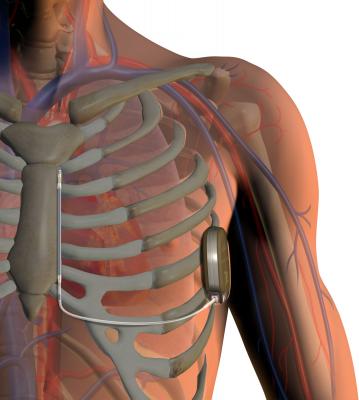
April 21, 2015 — The Journal of the American College of Cardiology published data confirming the long-term safety and efficacy of the Boston Scientific Corp. S-ICD System (subcutaneous implantable defibrillator) for patients at risk of sudden cardiac arrest.
The study, "Safety and Efficacy of the Totally Subcutaneous Implantable Defibrillator: 2-year Results from a Pooled Analysis of the IDE Study and EFFORTLESS Registry" was led by Martin Burke, M.D., professor of medicine at the University of Chicago. The analysis combined data from two large S-ICD studies to provide the most comprehensive look at S-ICD System patient outcomes to date.
The S-ICD System – which was approved by the U.S. Food & Drug Administration (FDA) in 2012 and gained Category 1 CPT Codes in January 2015 – was shown to be highly effective, converting more than 98 percent of heart arrhythmias that can lead to sudden death. These data are comparable to efficacy outcomes found in transvenous ICD (TV-ICD) clinical trials (95-99 percent).
When assessing 889 patients with a total of 1,571 patient-years of follow-up, there were no lead failures and no systemic infections associated with the S-ICD System. The total rate of complications observed in this analysis was low relative to rates found in comparable TV-ICD studies. The rate of cumulative complications increased by just one percentage point annually after the first year (9 percent at one year; 10 percent at two years; 11 percent at three years). Major acute complications related to the operation were lower than observed in studies with TV-ICD (2 percent[i] versus 3-5 percent).
"The S-ICD device sits just below the skin without the need for electrodes or leads to be placed into the heart and so it makes sense that we see decreased serious complications," said Burke. "By using the S-ICD System we can avoid the key risks that cause systemic or endovascular infections, which can add weeks to a hospital stay, incur tens of thousands of dollars in incremental hospital costs, and which are also associated with mortality for up to one-third of TV-ICD patients who acquire this type of infection."
The all-cause mortality rate for the S-ICD patients was 1.6 percent per year, comparing favorably to observed mortality rates in similar TV-ICD studies (2.5-5.5 percent per year).
This study combined data from the U.S. Investigational Device Exemption study that led to the device's approval by the FDA plus data from the EFFORTLESS registry, each with extended follow-up (average 22 months) relative to previously published reports on the S-ICD System.
For more information: www.bostonscientific.com


 January 05, 2026
January 05, 2026 









